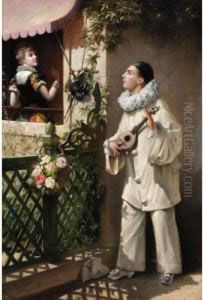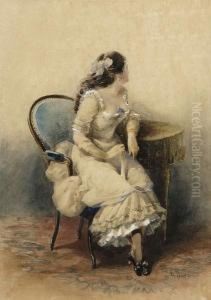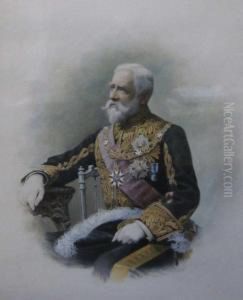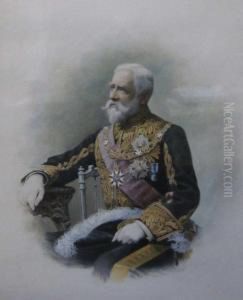Eugene Charles Picou Paintings
Eugène Charles François Picou was a French painter born on January 27, 1824, in Paris, France. He was known for his work in the academic and neoclassical styles, which were prevalent during the 19th century. Picou studied at the École des Beaux-Arts in Paris under François-Édouard Picot, a well-known French painter at the time.
Throughout his career, Picou focused on historical and mythological subjects, which were common themes in academic art. His paintings often featured meticulous attention to detail and a polished finish, emphasizing beauty and technical prowess—characteristics highly valued in the academic tradition.
Picou's work was exhibited at the Paris Salon, an official art exhibition of the Académie des Beaux-Arts in Paris. The Salon was the most important art event in the Western world during the 19th century. Participating in the Salon gave artists the opportunity to gain recognition and prestige. Picou's participation in these exhibitions helped to establish his reputation as an accomplished painter.
During his lifetime, Picou's style was in line with the tastes of the art establishment and the public. However, as the century progressed, new movements such as Impressionism began to emerge, challenging the academic norms and preferences for historical and mythological narratives.
Eugène Charles François Picou died on March 17, 1895, in Neuilly-sur-Seine. His legacy is that of a skilled academic artist who contributed to the rich tapestry of 19th-century French painting, although his name may not be as widely recognized as some of his contemporaries. His works can still be appreciated today for their craftsmanship and adherence to the academic standards of beauty and technique.



